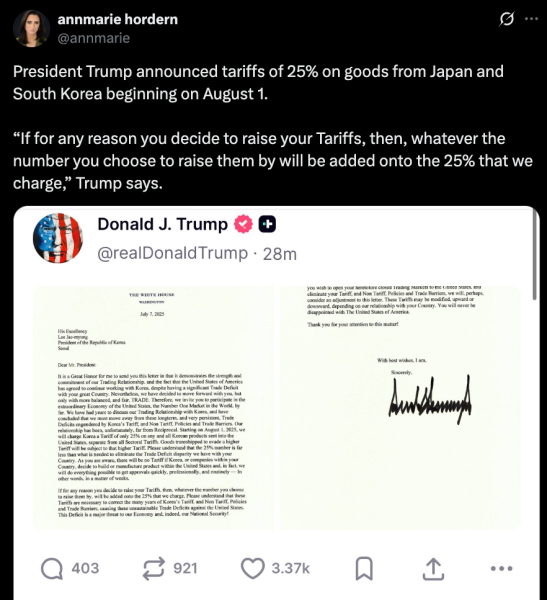Key Takeaways:
- Shenzhen authorities warn the public about rising scams involving stablecoins and digital assets.
- Criminals exploit “financial innovation” narratives to lure investors into unregulated schemes.
- Public urged to report illegal fundraising linked to crypto, with potential rewards for whistleblowers.
A fresh warning from Shenzhen officials has amplified China’s hardline stance against unauthorized crypto activity. On July 7, the city’s special task force targeting financial crime issued a public notice highlighting the increasing misuse of stablecoins in illegal fundraising, fraud, and pyramid schemes. The notice reflects Beijing’s broader efforts to control financial innovation while cracking down on unsanctioned digital assets.

Stablecoins Under Scrutiny as Illicit Activity Grows
Unlicensed firms are selling stablecoin-based investment schemes as part of “digital assets” and “financial innovation,” Shenzhen’s authorities said. These projects frequently tout eye-catching returns and low risk, despite investigations that reveal they operate with scant regulatory oversight.
These entities are intentionally creating opportunity from the ignorance of the public within regard to stablecoins and DeFi in order to solicit funds, the statement said. They are charged with facilitating counterfeit investment cases and promoting such “pseudo-assets” as “virtual currency” and “digital wealth products,” but a large number of these offers are actually used as a conduit for illegal schemes such as money laundering, gambling, and illegal pyramid structures.
Shenzhen’s announcement was issued by the Office for Preventing and Combating Illegal Financial Activities, a local government arm working under national directives to mitigate systemic financial risk.
Read More: China Quietly Liquidates Seized Crypto Amid Ban, Fueling $1.4B Public Revenue Surge
What the Warning Means for Crypto Investors in China
Unlicensed Projects Pose Significant Legal and Financial Risk
The government stressed that any organization offering investment services involving stablecoins must be licensed by China’s financial regulators. Without that approval, the fundraising is illegal.
According to the Regulations on Preventing and Handling Illegal Fundraising, any individual participating in such schemes does so at their own financial risk. The state will not compensate losses resulting from unlawful investment in unregistered digital asset ventures.
The warning emphasizes that no entity—whether domestic or foreign—can promote, issue, or sell tokens, stablecoins, or digital investment products to the Chinese public without explicit authorization.
Officials also highlighted how some operations are intentionally misleading, using language like “blockchain innovation” or “Web3 wealth opportunity” to give the appearance of legitimacy. In truth, they may lack any underlying value or functioning blockchain infrastructure.
A Pattern of Escalating Enforcement in China
China has maintained a strict regulatory stance on cryptocurrency for years. The country:
- Banned initial coin offerings (ICOs) in 2017
- Outlawed crypto trading platforms and mining in 2021
- Continues to block foreign exchanges and wallet services from operating inside its borders
This latest action from Shenzhen fits into a national effort to prevent digital finance from evolving into a shadow banking system. Now, with China’s central-bank digital currency (CBDC) e-CNY entering the scene, attitudes toward privately issued stablecoins are especially wary, since they could subvert monetary control.
The attention to stablecoins, rather than to more volatile cryptocurrencies like Bitcoin or Ethereum, also mirrors shifting trends in fraud. Now, many scams use or are based on tokens that are pegged to fiat currencies, to appear to be more stable and trustworthy, which is particularly important for retail investors.

Authorities Encourage Reporting, Offer Incentives
In an effort to expand public involvement in financial surveillance, Shenzhen authorities encouraged citizens to report suspected illegal activity related to stablecoins or other digital assets.
Complaints may be filed with the financial authorities either at the city-level or the district-level, with police. Informers of verified leads could be rewarded with money but how such compensation will be awarded was not articulated in the public notice.
This tactic is similar to those employed in China’s anti-corruption efforts, which frequently have citizens mobilized to aid the crackdowns. It also shows the government’s preventive focus, trying to catch fraud before it grows large enough to cause bigger financial damage.
Read More: China’s Bitcoin Mining Giants Quietly Shift Production to U.S. Amid Tariffs and Security Heat
Stablecoins Under Fire: Global Consequences of China’s Latest Warning
The Shenzhen speech comes as stablecoins are the subject of a global regulatory debate. In the U.S., EU, and various countries in Asia, regulators have been worried about:
- Systemic risks posed by unregulated stablecoin issuance
- The potential for shadow banking and liquidity crises
- Cross-border capital movement outside traditional controls
For crypto projects that have tried, or are trying, to build on a global basis, or offer yield bearing stablecoin products, it is a living example of how implementation is no joke. Programs that still push investment products for the mainland market — by social media or with the help of third-party agents — risk being targeted for investigation, asset seizure or blacklisting.
Indeed, there have already been numerous shutdowns and monitoring of Chinese language Telegram and WeChat crypto promotion groups when it comes to early 2025.
Risk Awareness Over Hype
The Shenzhen authorities’ underlying message is clear: Investor education and skepticism are crucial. A project that merely uses blockchain or DeFi vernacular is not necessarily safe or valid.
Both USDT, USDC and algorithmic stablecoin like DAI have become the mainstream in global DeFi, but all of the above are illegal for investment solicitation in mainland China without special authorization.
Investors, especially in Asia-Pacific countries with high levels of crypto adoption, are advised to check whether organizations are regulated, ask for disclosure, and shun guaranteed returns programs.
The post Shenzhen Issues Crypto Fraud Alert as Stablecoin Scams Multiply Across China appeared first on CryptoNinjas.

You can get bonuses upto $100 FREE BONUS when you:
💰 Install these recommended apps:
💲 SocialGood - 100% Crypto Back on Everyday Shopping
💲 xPortal - The DeFi For The Next Billion
💲 CryptoTab Browser - Lightweight, fast, and ready to mine!
💰 Register on these recommended exchanges:
🟡 Binance🟡 Bitfinex🟡 Bitmart🟡 Bittrex🟡 Bitget
🟡 CoinEx🟡 Crypto.com🟡 Gate.io🟡 Huobi🟡 Kucoin.




















Comments